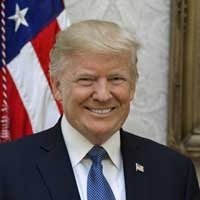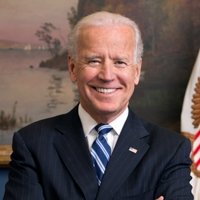Big Tech in 2020: Preventing Disinformation
How the Presidential Candidates Approach Regulating Social Media Content Curation
Since the U.S. Intelligence Community reached its conclusion that Russia interfered in the 2016 presidential election, including by spreading disinformation, politicians have focused on how to stop the spread of false information online. What roles should social media companies and/or the Federal Government play in content curation, especially concerning disinformation and foreign interference in elections?
Republican Candidates

President Donald Trump
President Trump advocates for a free and open environment on digital platforms and believes: "Google, Facebook, Twitter -- they’ve gotten these special deals from government... if they want to keep their special deal, here’s the bargain: They have to quit discriminating against conservatives." Trump’s executive office has also created "a new White House tool to report social media bias, censorship, and discrimination."
According to media reports, a proposed executive order is circulating to address perceived anti-conservative bias among tech and social media companies. The draft order "calls for the FCC to develop new regulations clarifying how and when the law protects social media websites when they decide to remove or suppress content on their platforms." It would mandate social media and tech companies to follow the guidelines of content moderation set by the FCC, making them more liable for the content on their platforms.
No known position: Former Governor Bill Weld
Democratic Candidates

Former Vice President Joe Biden
Though Biden has not commented on content regulations in order to stem foreign interference and online disinformation around elections, he proposes the establishment of a Commission on Federal Ethics that would be responsible for "robust disclosure requirements, so that any online electioneering communication that originates abroad is identified and flagged."
In June, he also pledged not to “fabricate, use or spread data or materials that were falsified, fabricated, doxed or stolen” and to avoid using bot networks or doctored images or deep fake videos in attacks against competitors. In an interview with The New York Times in January, Biden also advocated for the repeal of Section 230 of the Communications Decency Act, which absolves social media platforms and other websites with user-generated content of liability for the posts their users make.